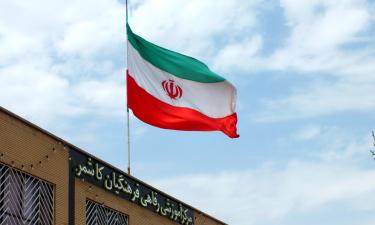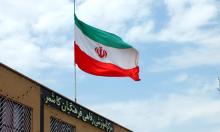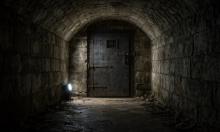Killing of Serb Prime Minister Djindjic: Possible Versions
Politicians and public figures in Serbia and all over the world are actively discussing possible versions of the assassination of Serbia Prime Minister Zoran Djindjic last Wednesday. At present, it seems to be the most believable version that the prime minister was assassinated by people dissatisfied with the struggle against organized crime started by Djindjic and who were scared that soonest arrests might follow. This is the version supported by Russian Federation Duma deputy, first deputy chairman of the OVR faction and deputy chairman of the Duma Committee for international affairs, Konstantin Kosachev. He gave an interview to PRAVDA.Ru correspondent.
“I am more inclined to believe the assassination was committed for economic reasons. Yes, Zoran Djindjic played a key role in extradition of Slobodan Milosevic to the Hague Tribunal. I myself visited Yugoslavia several times recently and witnessed the processes going on in the country; my opinion is that the political tension in Serbia is as high as never before to entail this tragic accident. Besides, we should keep it in mind that the fate of Slobodan Milosevic is not decided yet, the trial still continues. And if we allow the version of the assassination for political reasons as a revenge to the prime minister for the extradition of the former Yugoslav President Milosevic, then it brought more harm than good to Milosevic. It will seriously complicate the possibility of his acquittal in the future, or will reduce the chances of favorable outcome of the trial (to tell the truth, there is little hope that the outcome of the trial can be favorable for Milosevic).
I think that the large-scale activities on struggle against corruption started by Djindjic in Serbia became a serious reason for liquidation of the politician. During formation of a new state the factor of corruption often acquires a hypertrophied importance that can be seen on the example of Serbia and Montenegro. Zoran Djindjic was closely connected with leaders of west-european countries and anti-corruption structures operating in those countries. Djindjic supported close incorporation of Serbia into the international community, and struggle against corruption is the main condition for this kind of joining.
It is clear that after the assassination of Zoran Djindjic the internal political tension in the republic will increase; however, my opinion is that no serious shocks will happen there. The republic’s internal and foreign policy won’t change. It’s a clear fact that majority of the Serb population and politicians support the democratic reforms started by Zoran Djindjic. It is highly likely that Zoran Zivkovic, former deputy of Djindjic in the Serb Democratic Party, will be elected new prime minister of Serbia. There are no more possible candidates to the post. It is difficult to say now if Zoran Zivkovic will become an actual successor to Zoran Djindjic, the time will show.”
Meanwhile, chairman of People’s Will, the Party of National Revival, Sergey Baburin said in an interview to PRAVDA.Ru that although he was closely acquainted with Zoran Djindjic, he wouldn’t comment upon the assassination. He added that at the initial stage together with Djindjic he was against Slobodan Milosevic in favor of Radovan Karadzic; however, when Djindjic gave up the nation-oriented politics, their ways parted. “Many people in Serbia disagreed with his activity. But this is not the method for sorting out relationship; the way Djindjic was liquidated is political terror!”
Deputy chairman of the Serb Democratic Party Cedomir Jovanovic promised in an interview to Belgrade’s radio B-92 that “more political and other kinds of assassinations committed under Slobodan Milosevic would be disclosed in the nearest time.” Radio B-92 reports that “during investigation of the Serb prime minister assassination and due to declaration of the state of emergency in the republic, 400 out of the 500 Serb mobs have been already detained.” Zoran Zivkovic in an interview to the Italian mass media said that “anti-democratic forces have no chance to get back to the political scene.” Besides, as Zivkovic says “Belgrade will keep up cooperation with the Hague Tribunal.”
In this situation Slobodan Milosevic deserves only sympathy: it is for sure that some forces in Serbia or outside the country will use the assassination of the Serb prime minister in their own interests. This will be done with a view to once again discredit the ex-president of Yugoslavia and his close team-mates in front of the Serbian population and the whole of the world community. This is quite the same that we witness right now.
Sergey Stefanov PRAVDA.Ru
Translated by Maria Gousseva
Read the original in Russian: https://www.pravda.ru/world/34042-dzindzic/
Related links:
Subscribe to Pravda.Ru Telegram channel, Facebook, RSS!





